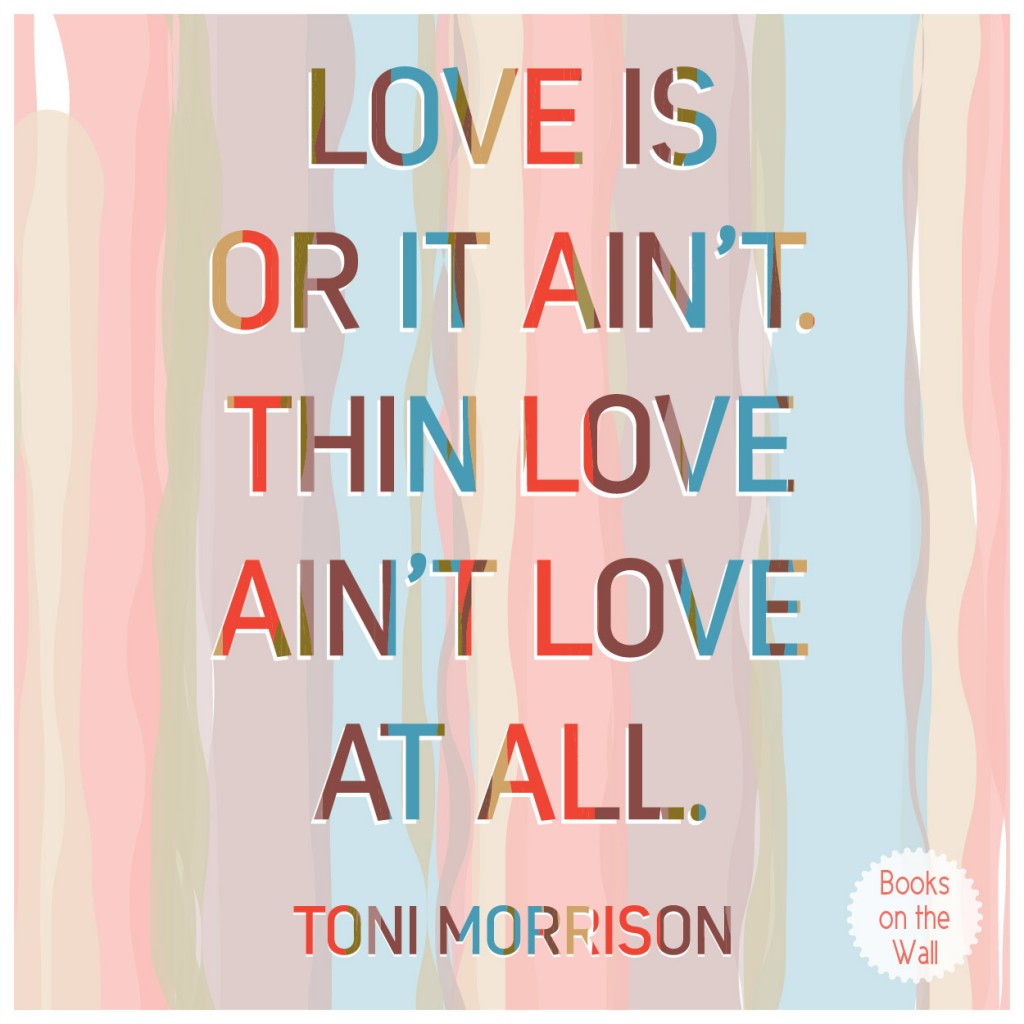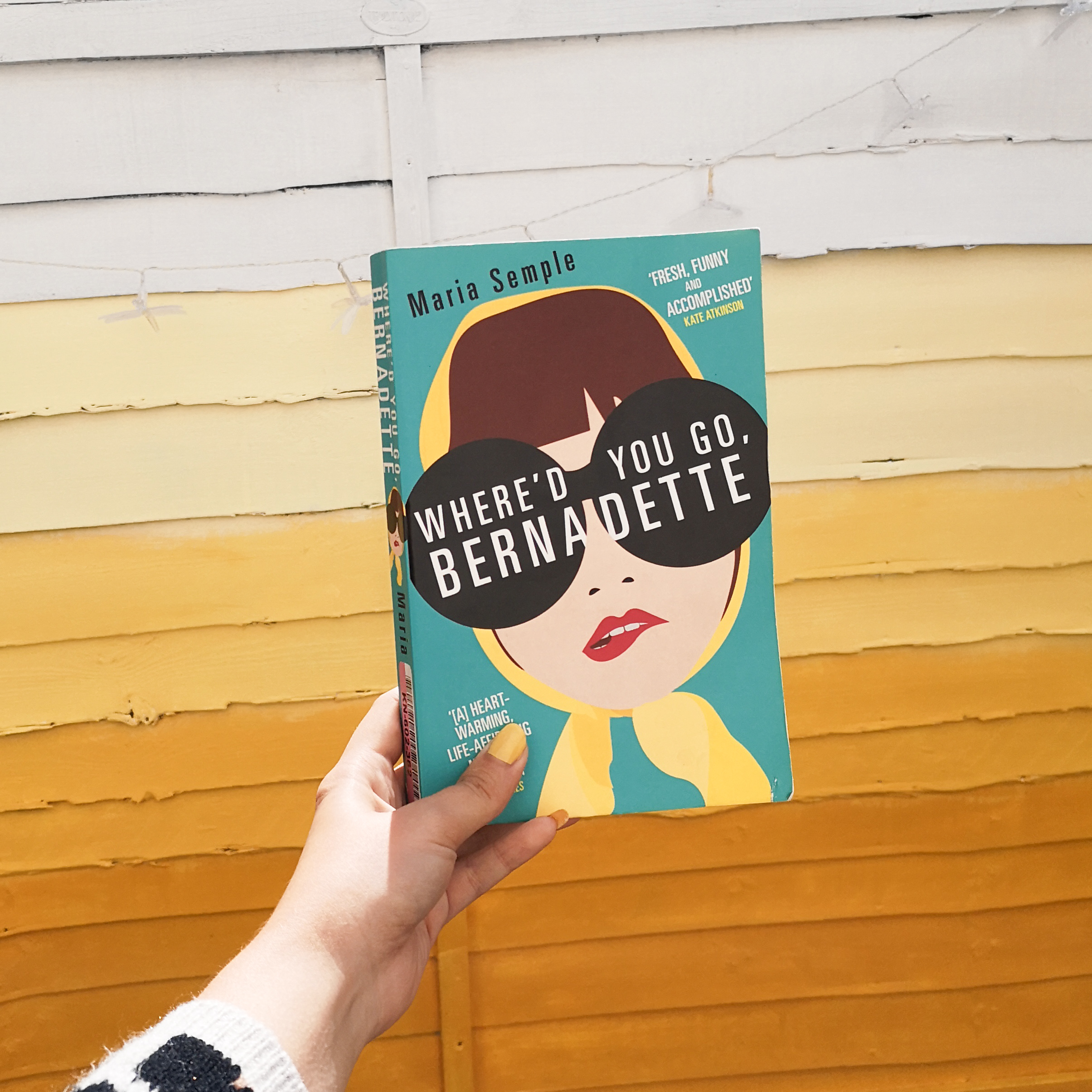
First of all, let me admit, I feel deeply under-qualified to write this review… but something in me says I should try. There is a set structure to ghost stories: normally someone dies; they are either an awful person, or die in awful circumstances. Unable to rest in peace, they come back and wreak havoc. We feel sorry for the family they haunt (usually good looking, rich and with an adorable child.) Eventually the ghost gets beaten away or triumphs, leaving us waiting for the moment it gets bored and moves in to our own house.
That is how I imagined Beloved to be. I started this book in Uni, all those years ago, and only finished it on the third attempt when I revisited it this month. That is not to say it isn’t a good book, or a hard read… I just think you’ve got to be in the right mind set.
The book focuses on Sethe, an African American woman in the years after the Civil War. Although the novel does not give a specific date, it flashes back less than 20 years when Sethe escaped from the slavery at a plantation known as Sweet Home. The horror in this book does not come from the ghost of the dead child known only as Beloved. It comes from the past. Do not get me wrong, Beloved (known by the only word carved on the pink gravestone – paid for in sexual services) does cause harm and upset in the conventional ghostly ways. But that pales almost into insignificance compared to the driving motives of the characters.
Slavery is taught in schools, it is the focus of documentaries and books. We know of the methods, and could probably describe some version of a plantation. However in this book we are made to feel, not the horrors of torture, or forced enslavement but the horror of not being able to own and belong. The driving motive behind the narrative is that of the mother-daughter relationship.
In a society where slaves would often see their children die whilst nursing their owner’s child, and see them sold off like cattle; ‘normal’ relationships were often suspended. The omnipresent character of Baby Suggs, had eight children and didn’t allow herself to care for any of them but the last; the only one she was allowed to keep.
In the present moment of the book, a former slave from the same plantation as Sethe notes “Risky, thought Paul D, very risky. For a used-to-be-slave woman to love anything that much was dangerous, especially if it was her children she had settled on to love. The best thing, he knew, was to love just a little bit, so when they broke its back, or shoved it in a croaker sack, well, maybe you’d have a little love left over for the next one.”
By running Sethe had the chance to keep her children, including her ‘crawling already? Girl’ and she unashamedly settled her love on them. So what’s new about that? Don’t all parents settle on loving their child? They do. However Sethe’s love is a “thick love” (spoiler alert) when white men come to return her and the children to her owner – under the fugitive slave act, she makes a choice. And so she acts, there and then, to kill her children.
Is there an act that could make you feel the horrors of slavery more than this?
Sethe abandoned her husband, risked her life, the life of her unborn child (she is heavily pregnant whilst fleeing the plantation) to get to the place her children were hiding and give her daughter breast milk. Breast milk, and the ability of a women to feed her child is a key theme for Sethe. Often left hungry by ‘nan’ whilst her biological mother – the ‘woman in the hat’ was forced to work in the fields – Sethe is determined to feed her child. She is determined they will know she loved them, cared for them… that they will know her, rather than just known the mark of slavery branded onto her – which was the only way she knew her mother, a tattoo under the breast. Sethe loved them as fiercely as she could. Yet she would rather kill her children than have them return to slavery.
The idea that you would rather have your child dead than alive, coming from a place of love rather than malice is tragic enough. It is more tragic when you consider that Toni Morrison’s interpretation is based on a true case.
Sethe has risked life for children, been to jail, been shunned and is willing to give it all up time and time again if only she can please her daughter Beloved – the only child she successfully killed. Yet the passed down memory of slavery haunts her children too. Denver (Beloved’s younger, surviving sister) is afraid of the world, and afraid that her mother may kill again. And Beloved herself sways between two opposing motives. With her murder tearing her away from her mother at such a young age, she craves love, attention, sweet treats from childhood. Yet she is also angry; angry at the memory of her mother leaving her in a field to nurse a white women, angry at her for killing her.
The memory of slavery affects all of the characters, not just the children, with none of them daring to form close relationships. Paul D is ashamed of his past treatment, questioning whether he is a man because of his acts… or because a white man once said so. His shame, and years of locking down emotions means he scared of becoming close to others. Can they accept him as both a man and a slave? And can he allow himself to get close, only for a white man to rip them apart? Even though all of the characters are now ‘free’ mentally they aren’t. One passage in the book sums it up perfectly “freeing yourself was one thing, claiming ownership of that freed self was another.”
Toni Morrison apparently wanted to make the slave experience ‘intimate’ and show how things in everyday life can be at once under control and out of control, when someone else has had power over your life in such a way. At this she is hugely successful.
This is not a book about families, love or communities in a traditional sense. This is a book that lays bare the emotional and psychological consequences of slavery. Consequences that affect families, and in turn communities for generations to come.
It is a book that breathes life into the sketches of figures in text books. The book is equally graphic and moving in parts, and makes you appreciate the little things. Knowing your family and friends won’t be removed from your life on a whim. Living a life in which you can love, because the object of your affection is ‘yours’… ‘your partner’ ‘your child’ ‘your parent’
It is a book that gives a more personal take on the traditional fact-rich texts about slavery. It is a book that should be essential reading.








